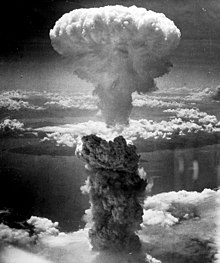 |
| bombing effects!! |
The debate over the atomic bombings of Hiroshima and Nagasaki concerns the United States' atomic bombings of Hiroshima and Nagasaki on 6 August and 9 August 1945 at the close of the Second World War (1939–45). Some debaters focus on what Truman knew and believed, and others on whether or not the bombings were the proximate cause of Japanese surrender. Over the course of time different arguments have gained and lost support as new evidence has become available and as new major studies have been completed. However, a primary and continuing focus has been on the role of the bombings in Japan's surrender and the U.S.'s ethical justification for them based upon the premise that the bombing precipitated the surrender. This remains the subject of both scholarlyand popular debate.
In 2005 in an overview of historiography about the matter, J. Samuel Walker wrote that "the controversy over the use of the bomb seems certain to continue."[2] Walker stated that "The fundamental issue that has divided scholars over a period of nearly four decades is whether the use of the bomb was necessary to achieve victory in the war in the Pacific on terms satisfactory to the United States."[2]
Supporters of the bombings generally assert that they caused the Japanese surrender, preventing massive casualties on both sides in the planned invasion of Japan: Kyūshū was to be invaded in October 1945 and Honshū five months later. Those who oppose the bombings argue that it was simply an extension of the already fierce conventional bombing campaign[3] and, therefore, militarily unnecessary,[4] inherently immoral, a war crime, or a form of state terrorism.[5]
No comments:
Post a Comment